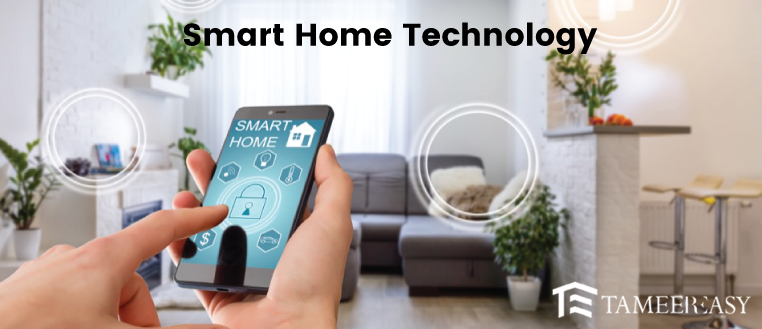Technology now overlooks almost every part of our lives, even our houses, in today’s age of rapid advancement. Innovative home technology has completely changed how we use and maintain our living areas. Incorporating smart home technologies into the construction process has emerged as a distinguishing trend with the convergence of construction and technology.
These technologies, which range from home stories automation to energy management systems, improve convenience, comfort, and energy efficiency. In this article, we will delve into the intriguing realm of smart house technologies in construction, looking at their advantages, uses, and potential future effects on contemporary living.
The Rise of Smart Homes
Thanks to developments in wireless connectivity, Internet of Things (IoT) gadgets, and artificial intelligence, the idea of “smart homes” has received a lot of traction lately. Smart homes turn dwellings into intelligent living spaces by giving owners more control, automation, and connectivity. Smart technologies can be seamlessly integrated, their performance can be optimised, and the construction industry can improve user experience by incorporating them from the beginning of design.
Important Smart Home Technology Elements
1). Home automation
With the help of centralised control panels or mobile applications, smart home automation systems let homeowners manage various home features, such as lighting, HVAC, Security, and entertainment systems.
2). Energy Management Systems
Smart energy management systems provide real-time monitoring and control of energy usage, becoming increasingly crucial for energy-efficient homes. These technologies enable significant energy savings, from intelligent lighting systems that alter brightness based on occupancy to smart thermostats that optimise temperature settings.
3). Security and surveillance
Smart security systems incorporate cameras, motion detectors, door locks, and alarm systems, allowing homeowners to monitor and secure their properties remotely. Real-time notifications and alarms offer safety and peace of mind.
4). Voice-Activated Assistants
Voice assistants, like Google Assistant and Amazon’s Alexa, have increased in smart homes. Homes have become more logical and user-friendly thanks to their ability to be controlled by voice commands for various devices, questions, and chores.
Advantages and Benefits
1). Convenience and Comfort
Convenience and comfort are two key benefits of smart home technologies. Homeowners may automate monotonous jobs, operate appliances from a distance, and personalise their living spaces to suit their preferences.
2). Energy Efficiency and Cost Savings
Smart home solutions help to significantly reduce utility costs by skillfully managing energy consumption. Energy efficiency is improved via automated lighting, HVAC, and energy monitoring systems.
3). Increased Security and Safety
Smart security systems boost home security by offering real-time monitoring, remote control, and alarms. Integration with doorbell cameras and smart locks provides improved control and oversight.
4). Accessibility and Aging-in-Place
Smart home technology supports independence and accessibility for the elderly or people with disabilities. These solutions, which range from voice-controlled gadgets to automated assistive technologies, promote ageing in place.
Construction-related application
1). Design and Planning
Smart home technologies impact how houses are laid out and designed, guaranteeing the right infrastructure for seamless connectivity, cable management, and device integration.
2). Integration throughout Construction
Smart technologies, such as wiring, cabling, and infrastructure configuration, are incorporated throughout the construction. Cooperation between architects, electricians, and technology providers ensures a coherent and integrated system.
3). Future-Proofing
Homes can be future-proofed for prospective technological breakthroughs, enabling simple integration of new devices and capabilities by including adaptable infrastructure and scalable systems during construction.
4). Customisation and Personalization
Smart home technologies give homeowners the ability to customise and tailor their living environments by adjusting the elements of the house to their preferred lifestyles.
Conclusion
Smart home technologies are changing how we live by converting ordinary homes into intelligent, networked living areas. Homeowners can benefit from improved comfort, convenience, energy efficiency, and Security by incorporating these technologies into the construction process.
The construction sector must adopt these advances as technology develops to meet the rising demand for smart houses.


